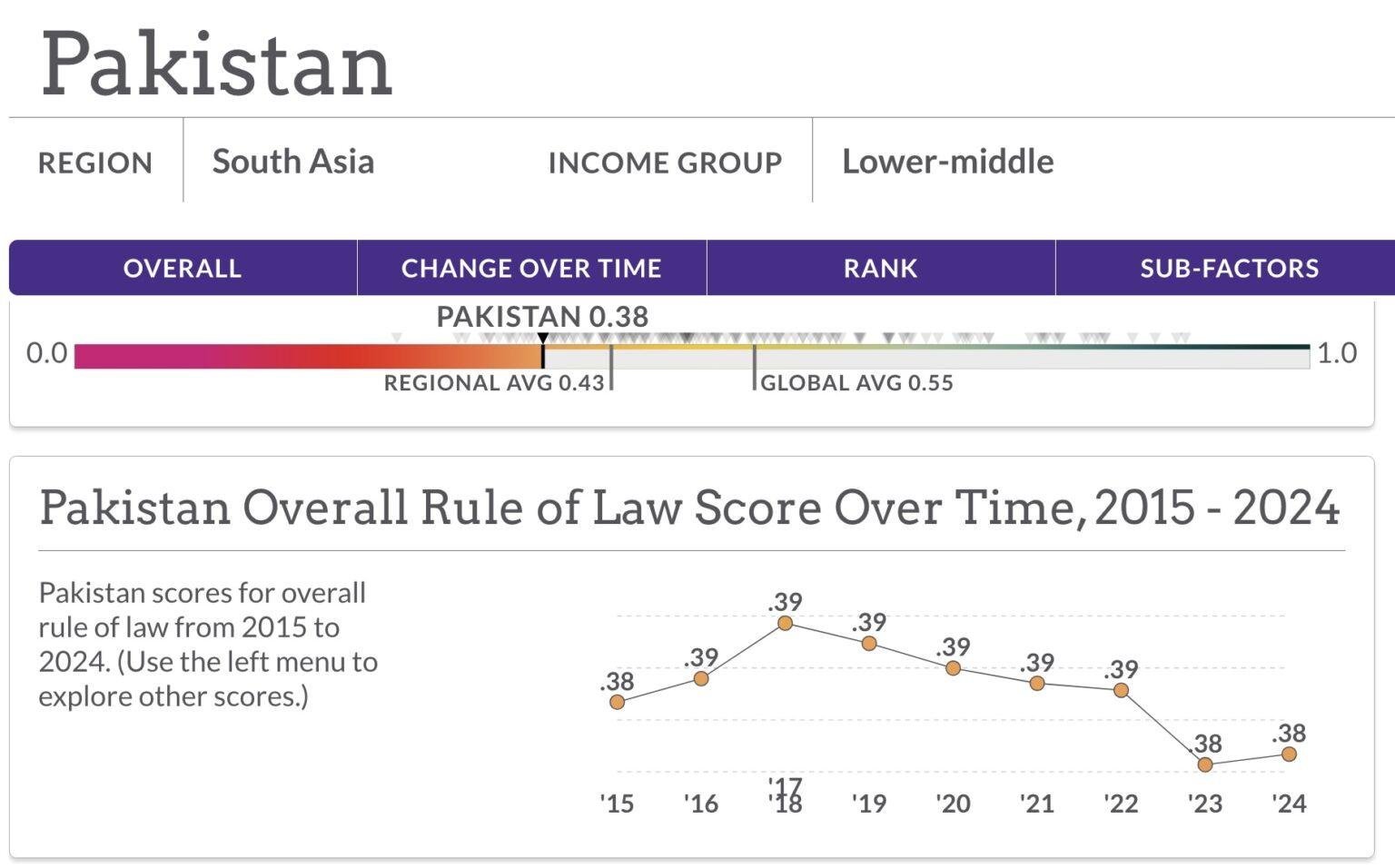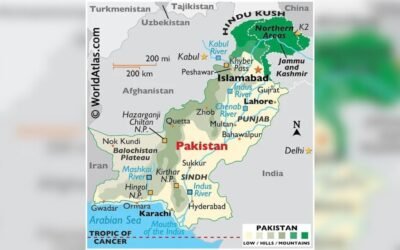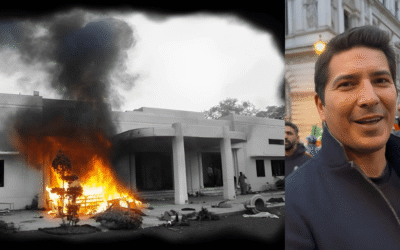Pakistan faces a stark reality: laws and policies often exist on paper but fail to deliver in practice. Despite well-intentioned legislation, systemic flaws in governance, institutions, and accountability undermine meaningful implementation, holding back the country’s development.
Where Laws Meet Resistance
Experts agree that weak institutions, corruption, political instability, and resource shortages are the main barriers to turning policy into real impact.
“Pakistan’s legal framework is often strong, but the real weakness lies in follow-up and enforcement,” says governance scholar Dr. Ijaz Khan of LUMS. “Without institutional capacity, even the best policies remain hollow.”
You May Like To Read: Five-Nation Statement Condemns Israel’s Planned Gaza Offensive
A 2024 World Justice Project report placed Pakistan 129th out of 142 countries on the Rule of Law Index, an improvement of only one spot, highlighting weak enforcement, fragile civil justice, and poor security. In the “order and security” category, Pakistan ranked 140th, placing it among the worst-performing nations globally.
Meanwhile, Transparency International’s 2024 Corruption Perceptions Index ranked Pakistan 135th out of 180 countries, with its score dropping from 29 in 2023 to 27 in 2024—a signal that corruption continues to stall public resources and policy follow-through.
This barbaric and entitled behaviour of police officers brutally beating up a woman in Punjab with such impunity is not an isolated incident.
Unfortunately, this perverse attitude operates across ranks where use of force is essentially sanctioned through silence against women… https://t.co/7ivqfzqtlR
— Barrister Maleeka Bokhari (@MalBokhari) August 8, 2025
Case Studies: Where Policy Meets Ground Reality

WJP: Rule of law score from 2015-2024
The justice system is severely understaffed. The Supreme Court’s sanctioned strength was raised to 25 judges in 2024, but only 16 positions are filled, leaving nine vacancies.
Lower courts fare worse: Pakistan has just one judge for every 62,800 citizens, managing over 2.26 million pending cases. These delays cost citizens access to justice and weaken governance.
Constitutional Shift Raises Alarm
The 26th Amendment, passed in October 2024, shifted judicial appointments to a parliamentary committee—raising concerns over political interference. Legal experts warn this move undermines judicial independence by placing appointments under political control.
You May Like To Read: Punjab Extends Summer Vacation for Schools Until September 1
Corruption Undermines Public Trust
Transparency International’s data shows that 35% of Pakistanis believe corruption has worsened over the past year, and 1 in 4 people end up paying bribes for essential services.
These corrupt practices delay policy execution in vital sectors like health, education, and infrastructure, grinding crucial services to a halt.

Source: X/@thewirepak
Root Causes: A Broken Chain of Governance
- Institutional Weakness
Overlapping responsibilities, under-resourced agencies, and inefficient bureaucracy erode implementation. - Political Interference
Frequent government changes shift priorities, delaying consistent execution of long-term policies. - Corruption
Misappropriated funds leave essential projects unimplemented in both urban and rural areas. - Accountability Deficit
Weak oversight and scant media freedom allow failures to continue unchecked. - Judicial Backlog and Staff Shortages
With limited manpower and mounting cases, the judiciary lacks the capacity to deliver timely justice.
Can the Gap Be Bridged?
Despite these hurdles, reform pathways exist.
Strengthen Institutions
Pakistan must fill judicial vacancies, properly fund courts, and empower independent bodies to enforce accountability.
Increase Transparency and Public Oversight
Opening budgets, implementing public audits, and protecting press freedom can hold systems accountable. Civil society can play a vital watchdog role.
Depoliticize Key Institutions
Restoring judicial independence, especially in the wake of the 26th Amendment, will protect the integrity of legal decision-making.
You May Like To Read: Banned Clerics and Bolder Platforms
Invest in Capacity Building
Training civil servants and modernizing bureaucracy can help officials execute the law in both urban and far-flung regions.
Leverage Technology
Digitizing case management and public feedback systems can improve transparency and accountability.
Engage Citizens
Public input in policy design and feedback loops improves relevance and execution.
Pakistan’s progress depends on turning law into action. Drafting bills or policies is only half the battle; a more critical part lies in execution. Institutional reform, empowered judicial systems, and public accountability can close that gap.
As legal analyst Ayesha Malik notes:
“We need more focus on implementation metrics, not just drafting laws but tracking their outcomes.”
Pakistan’s future won’t be secured by laws alone but by the ability to deliver on them. That is where true national transformation begins.







